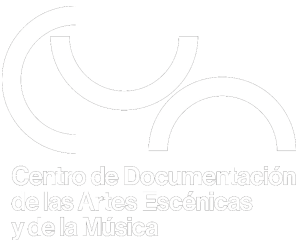Music, patronage and reform in 16th-century Italy: new light on Cardinal Carlo Borromeo / Valerio Morucci.
Tipo de material: ArtículoOxford: Oxford University Press, 2019Descripción: 14 páginas
En: Early musicResumen: Music historians are certainly familiar with the figure of Cardinal Carlo Borromeo. Important research has illuminated his association with the composer Vicenzo Ruffo, his reform of female convents, and, more generally, his influence over the musical life of Milan, including local churches and confraternities; more recently, Borromeo's relationship with the musician Tomás Luis de Victoria has been closely examined. However, our knowledge of his role as a promoter of the so-called "Counter-Reformation" in music is fragmentary. In particular, a comprehensive investigation of Borromeo's private correspondence is lacking. In order to fill this lacuna, this article uses newly discovered letters (housed in the Biblioteca Ambrosiana, Milan) to illuminate several interrelated aspects of Borromeo's activity as a patron and reformer in the aftermath fo the Council of Trent: firstly, his support for musicians and the much discussed issue of textual intelligibility, and secondly, the prohibition of musical instruments in church and his directives against public musical entertainments.
ArtículoOxford: Oxford University Press, 2019Descripción: 14 páginas
En: Early musicResumen: Music historians are certainly familiar with the figure of Cardinal Carlo Borromeo. Important research has illuminated his association with the composer Vicenzo Ruffo, his reform of female convents, and, more generally, his influence over the musical life of Milan, including local churches and confraternities; more recently, Borromeo's relationship with the musician Tomás Luis de Victoria has been closely examined. However, our knowledge of his role as a promoter of the so-called "Counter-Reformation" in music is fragmentary. In particular, a comprehensive investigation of Borromeo's private correspondence is lacking. In order to fill this lacuna, this article uses newly discovered letters (housed in the Biblioteca Ambrosiana, Milan) to illuminate several interrelated aspects of Borromeo's activity as a patron and reformer in the aftermath fo the Council of Trent: firstly, his support for musicians and the much discussed issue of textual intelligibility, and secondly, the prohibition of musical instruments in church and his directives against public musical entertainments.
Music historians are certainly familiar with the figure of Cardinal Carlo Borromeo. Important research has illuminated his association with the composer Vicenzo Ruffo, his reform of female convents, and, more generally, his influence over the musical life of Milan, including local churches and confraternities; more recently, Borromeo's relationship with the musician Tomás Luis de Victoria has been closely examined. However, our knowledge of his role as a promoter of the so-called "Counter-Reformation" in music is fragmentary. In particular, a comprehensive investigation of Borromeo's private correspondence is lacking. In order to fill this lacuna, this article uses newly discovered letters (housed in the Biblioteca Ambrosiana, Milan) to illuminate several interrelated aspects of Borromeo's activity as a patron and reformer in the aftermath fo the Council of Trent: firstly, his support for musicians and the much discussed issue of textual intelligibility, and secondly, the prohibition of musical instruments in church and his directives against public musical entertainments.
No hay comentarios en este titulo.

